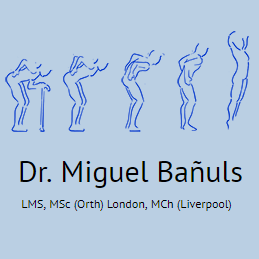Writing and web design go together quite well. Both require creativity and attention to detail. Importantly, they also serve as a gateway to connecting with others.
It’s a combination that has helped me through my journey. With 20+ years in design and another 10+ writing, I feel that each has provided me with a foundation for growth. As one discipline informs the other, there is so much I might have missed had I not participated in both.
Over the long term, the act of writing about web design can make you a better designer. But for many web professionals, there are roadblocks to getting started. Imposter syndrome and self-doubt are prime examples. A seemingly saturated community of bloggers may also play a role.
If you’re on the fence about publishing, you might wonder if there’s anything original left to say. On the other hand, you might not feel that writing would benefit your career.
Today, I’ll fill you in on what writing has meant to me as a web designer. Along the way, I’ll share some tips for making the most out of the experience.
Writing Opens Your Mind and Changes Perspective
One of the common misconceptions about writing is that you have to be an expert in a particular area to do it. For instance, you must know JavaScript like the back of your hand to write about the language.
On the contrary, writing offers a great opportunity to learn about a subject. It prompts you to conduct research and focus on the fundamentals. Thus, even a skill that seems insurmountable can start to make sense over time.
This opens up a whole world of possibilities. You may even begin picking topics precisely because you don’t know much about them yet. Writing can give you the motivation to dive in and start learning.
It’s also a catalyst for changing your approach to problem-solving. Writing a tutorial, for example, forces you to utilize a step-by-step strategy. You won’t want to skip ahead, because readers may miss out on some important information.
This is a great way to get past the more scattered methodology the web often throws at us. Instead of furiously copying and pasting code snippets in hopes that one will work, you can create a plan and see it through.
More Confidence with Clients
As writing expands your knowledge, it also helps to create confidence. This can be a huge help when it comes to working with clients.
Because you’ve done your homework when crafting articles, you’ll be able to explain concepts to clients more easily. And the experience also means you’re an authority on the subjects you’ve written about.
It leads to speaking with the reassurance that you know what you’re talking about. So often, we don’t speak up because we’re afraid of not being taken seriously. The more you write, the better you can become at communicating opinions and ideas.
Clients will think of you as an indispensable resource. They’ll be more likely to ask your advice before making decisions. In addition, your confidence can help to build a trusting relationship.
That not only benefits your clients but you as well. The more knowledgeable you become, the more you can charge for your services.

How to Get Past Your Fears
Taking the first steps toward writing about your web design journey can be awkward. There are a lot of “what ifs” that can enter your mind. You may be worried that you won’t find an audience or that your writing skills aren’t up to par.
Both of these fears are common and understandable. But they also don’t matter much in the grand scheme of things. That is, so long as you have realistic expectations.
In itself, writing is a positive for your web design career. Regardless of who sees it or how sharp your grammar is, there is a benefit to simply participating.
You don’t have to cultivate millions of readers or fill your office with trophies to be a success. Starting with the idea of exploring a particular topic is all you need to get moving in the right direction.
And you can improve with time. I’m not the world’s greatest writer. But I do know that I’ve leveled up my game over the years. Improvement comes from refining your craft and becoming more confident in what you have to say.

Where to Start
Even if this sounds interesting, where do you start? My advice is to start small and find something you’re passionate about.
The subject matter can vary greatly. It could be a look at what modern CSS is capable of or a rundown of your favorite WordPress plugins. Writing about a project that made an impact on you is also a great choice.
There are no hard-and-fast rules here. It’s all about what’s important to you. Odds are, there is someone else out there who can benefit from what you have to say.
As for the medium, you have plenty of options. If you prefer a personal blog – go for it. Other writing-oriented services exist and make it easy to get up and running. As long as you have the tools you need to write the way you want, it’s all good.
Finally, don’t hesitate to write in your own voice. There’s no need to try and dress up your words – just be you! Again, you’ll be able to discover and refine your style as you move along.

Writing as a Means of Self-Improvement
Traditionally, improving your web design skills has meant signing up for a course or following a tutorial. But if you’re looking for a different way to grow, writing is also a viable path.
Depending on the type of content you produce, there’s an opportunity to gain hands-on experience. Test driving a new tool, for instance, lets you learn as you research. And by writing down your thoughts, you’re helping others at the same time.
It also connects you to the web design community. You might receive some valuable feedback or even some words of thanks along the way. If you’re lucky, you could get a paid gig or two out of the bargain.
While writing may not be the right option for everybody, I’d highly recommend considering it. It could lead you to become an even better web designer while helping you grow personally as well.
How Writing Can Help Your Web Design Career Medianic.















